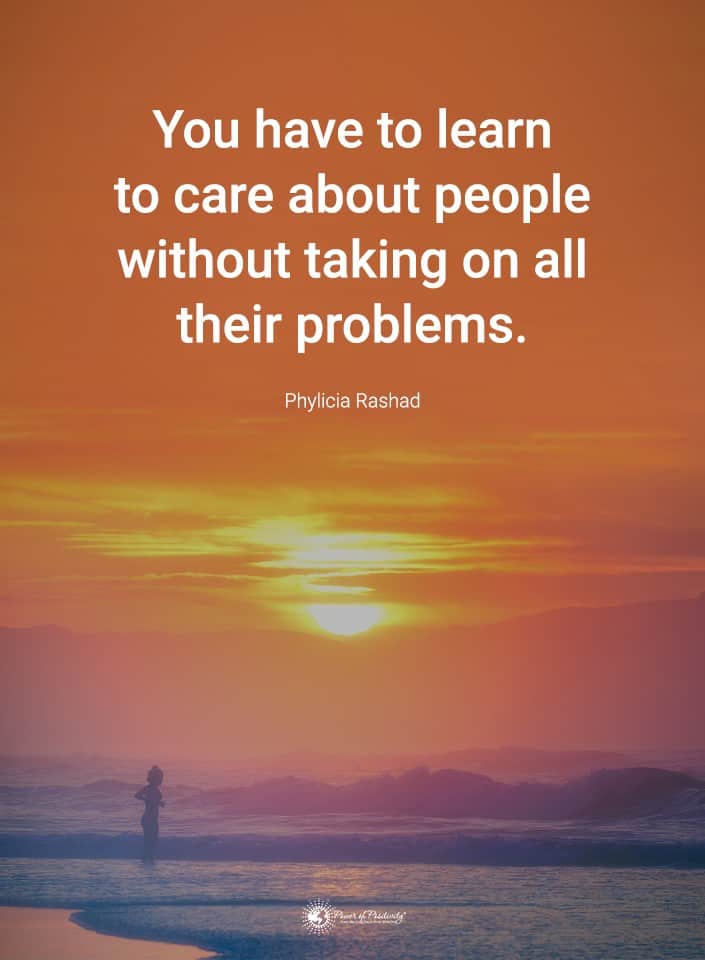Addiction is a complex and difficult subject to broach. It can cause significant distress, harm the people close to the addict, ruin lives, and even kill.
But if everyone knows how awful addiction can be, why do so many fall victim to it? And is there any real way out? Here’s how experts reveal 4 reasons why we get addicted and 3 ways to break an addiction.
4 Reasons Why Someone Might Get Addicted
Experts share the causes of addiction.
1. Dependency On Prescriptions
 One of the most common causes of substance abuse is a little surprising: over-prescription. In the United States, many people become overly dependent on their prescriptions, resulting in them feeling like they need those prescriptions to survive. This is, according to Brenda Munnerlyn, a registered nurse.
One of the most common causes of substance abuse is a little surprising: over-prescription. In the United States, many people become overly dependent on their prescriptions, resulting in them feeling like they need those prescriptions to survive. This is, according to Brenda Munnerlyn, a registered nurse.
While doctors lose their licenses due to providing excess medication to their patients, patients themselves often also perform dangerous behaviors. They may lie about conditions to receive more prescriptions, take medications from others, or even turn to street medications to gain access to more and more.
Worse still, taking too many of these types of drugs causes the body to build up a tolerance to it, resulting in the need for higher and higher doses each time. It’s a dangerous spiral.
2. Genetics
If your parents were addicts or easily became addicted to things, there’s a chance that you may inherit that tendency. A significant number of children of addicts wing up becoming dependent on similar addictions, says Munnerlyn.
Worse still, many genetic addicts will be able to engage in more extreme addictive behaviors due to a higher tolerance, which means they can unknowingly endanger themselves. They may also have an easier time becoming addicted to substances.
3. Poor Mental Health
A bad mental state can contribute to the desire to use addiction as a coping mechanism, Munnerlyn states. Here are some ways that this may happen:
· Mental Illness
For many, having a pre-existing mental disorder, such as OCD, anxiety, or depression, can be a catalyst for falling into addiction. Poor management of disorders is the key reason that this may happen.
· Stress
With all the life stressors, certain addictive substances can have a calming or distracting effect, allowing you to push aside or dismiss the stress.
· Trauma
Someone with unresolved and unaddressed trauma may be more susceptible to triggers that cause them to turn to addictive habits to cope. Repressed trauma can also unknowingly cause someone to seek unhealthy coping mechanisms.
4. Brain Adaptation
When you repeatedly engage in addictive habits, your brain begins to change and adapt, attempting to balance out the surges in dopamine with the substance levels it is used to receiving. This results in the decreased production of dopamine, or lowered dopamine receptor totals, says University of Texas professor of neuroscience Dr. Hitoshi Morikawa.
What does this mean? Well, it means the body has lost its ability to maintain normal dopamine levels, requiring the repeated use of the addictive product to be at “normal” levels. The lack of dopamine means decreased positive thinking and a higher susceptibility to negative emotions, which need even more of that addictive product to cope!
Over time, the “reward” provided from continuing the addiction is entirely replaced with only a desire for it. The need for this addiction becomes the brain’s new normal, and without it, functioning is often lost. This need is then hardwired in, resulting in a dangerous susceptibility to addiction triggers.
3 Ways To Break Addiction
 1. Write Things Down
1. Write Things Down
If you have any goal, writing down its details is a good place to start. Research has found that this is a crucial and positive step that better solidifies your mind’s goal, allowing you to achieve it in better and more effective ways.
Substance Abuse Treatment Specialist Tiffany Douglass recommends multiple different steps to write things down when overcoming serious addiction. To begin with, you should start by noting down some of the ways your addiction harms you and those around you. It can be difficult to stare in the face of the harmful effects of what are, essentially, your actions. But seeing this list will better motivate you and help you confront reality.
Here are some ideas on how to go about this:
- Begin by focusing on what originally led to the addiction; what issues were you avoiding or coping with through this addiction?
- Consider the ways your addiction has impacted your mental health; do you feel shame for your addiction, do you have symptoms of mental disorders, or do you generally feel bad all the time?
- Consider the ways your addiction has impacted your physical health; are you at greater risk for certain diseases, or have you begun to notice some negative physical effects?
- Consider the ways your addiction has impacted your financial situation; how much money do you spend on your addiction, and what has that prevented you from financing?
- Think about everyday problems resulting from your addiction; does it take a lot of time out of your day, do you feel judged for it, or are you struggling to focus without it?
Next, Douglass states that you should begin writing down what you imagine your life can be like once you overcome your addiction or what you want it to resemble.
Here are some ideas:
- You will be able to finance your hobbies and other big things.
- You will be in a fitter, healthier shape.
- You’ll be happier with your friends and family, and they will be less worried about you.
- You will feel freer and more in control.
- You will have a stronger sense of self-esteem and confidence.
- You’ll feel proud of yourself for overcoming all odds.
Finally, Douglass says you should add one more thing to your written list: your commitment to quitting. These commitments involve writing clear reasons that you’re quitting in a motivational way. Overcoming your addiction to work towards those commitments will be even harder if you’re not writing them down.
Here are some examples of motivational reasons to kick an addiction:
- Live your life to its fullest, without fear or shame.
- Be a better friend, child, sibling, spouse, partner, or worker.
- Survive for a long time so you can see the things you want to see in the future, such as your grandchildren.
- Live long enough to fulfill your dreams.
- Save more money so you can move away from the things that cause you pain.
2. Prepare To Handle The Difficulties
Temptation, withdrawal symptoms, and other similar problems can create setbacks that lead to relapses. If you’re not prepared and aren’t brutally honest with yourself about how difficult the journey to beating addiction can be, you may fall quickly the first time you face trouble. Here are some tips for managing difficulties, according to Douglass:
· Stay Occupied
Addiction often robs you of time and energy. Now that you’re trying to quit, you’ll have so much more open time. If you don’t fill it properly, you may wind up falling back into old patterns. Find distractions and new hobbies like exercising, socializing, cooking, or taking classes. The best options will be those that give you a boost in your positive thinking through feel-good hormones and the activation of your brain’s reward systems. Exercising, singing, and dancing are among some activities that do this.
· Keep Triggers At A Distance
Try and take note of things that trigger your addictive behaviors or increase your urges to give in to them. These triggers should be kept at arm’s length and beyond. Remove all memories of your addiction from your home, enlisting help from others if need be. Avoid places that encourage the actions of your addiction or remind you of them. Distance yourself from people who remain deep in addiction and disinterested in recovering. It seems like a lot to do, but it often pays off.
· Know That Relapses Aren’t The End
Relapse is commonly viewed as a form of “failure” by recovering addicts. The truth is that it’s often part of the journey. The longer you stay caught up in guilt and shame over a relapse, the less time you’ll have to focus on your renewed efforts to recover. After a relapse, you come away stronger and wiser, with more knowledge of your limits, danger periods, and what works best for you. It’s not starting back at square one. It’s a part of your progress. Remember, progress is not linear, so maintain positive thinking!
3. Get Help
Addiction is no joke. The very concept of trying to break an addiction on your own is already an almost impossible battle – and there is no shame in that! Addiction is a dragon that is difficult to defeat. Still, the aid of a professional is not only valuable but often a safer way to go about besting your inner demons.
Certified Personal Trainer Tiffany Stafford highly recommends seeking support, both on a professional and a personal level, if you truly want to overcome your addictions. Thankfully, many people struggle with addiction because many institutions and organizations offer aid for fighting these battles. Here are some tips:
- Seek out local mental health professionals and therapists who are qualified and can create a workable treatment plan for you
- Seek local support groups that meet or communicate regularly; you will feel less alone and have others fighting the same battle as you.
- Do your research to find the best professionals, groups, and resources for the problems you struggle with
- Find free resources that offer aid and assistance to those trying to quit addictions.
- Talk to a doctor or similar healthcare professional about possible withdrawal symptoms before you begin trying to kick the habit, so you know what to prepare for
- Confide in the people you love and trust who care about you in return and ask for their support to positively impact your chances of success; make sure you maintain and abide by healthy boundaries from all sides.
Final Thoughts On Some Reasons Why We Get Addicted And Ways To Break Addictions
Fighting addiction is frightening and difficult, but it’s also brave. If you are struggling with overcoming an addiction of any kind, whether it is related to substances, activities, or lesser-known conditions, know that you are capable of breaking free from its chains.



















